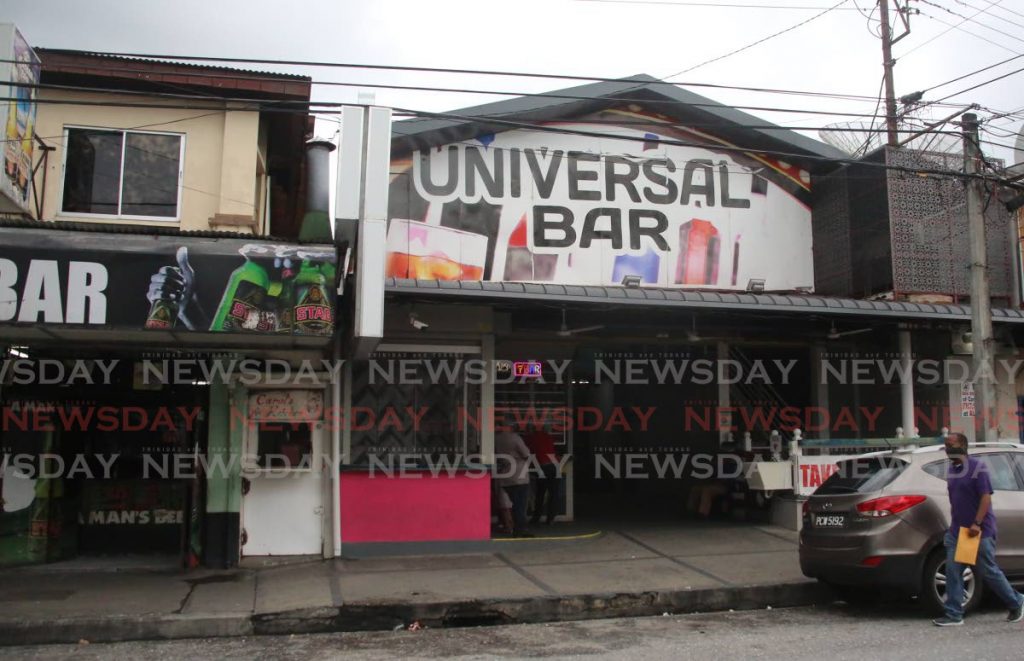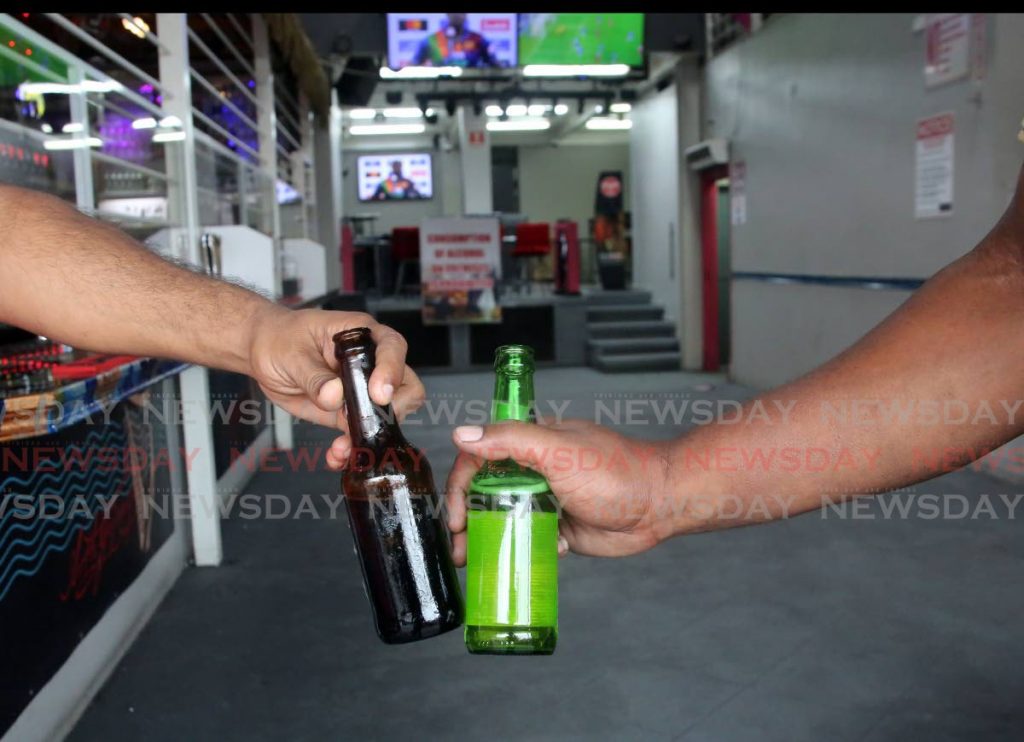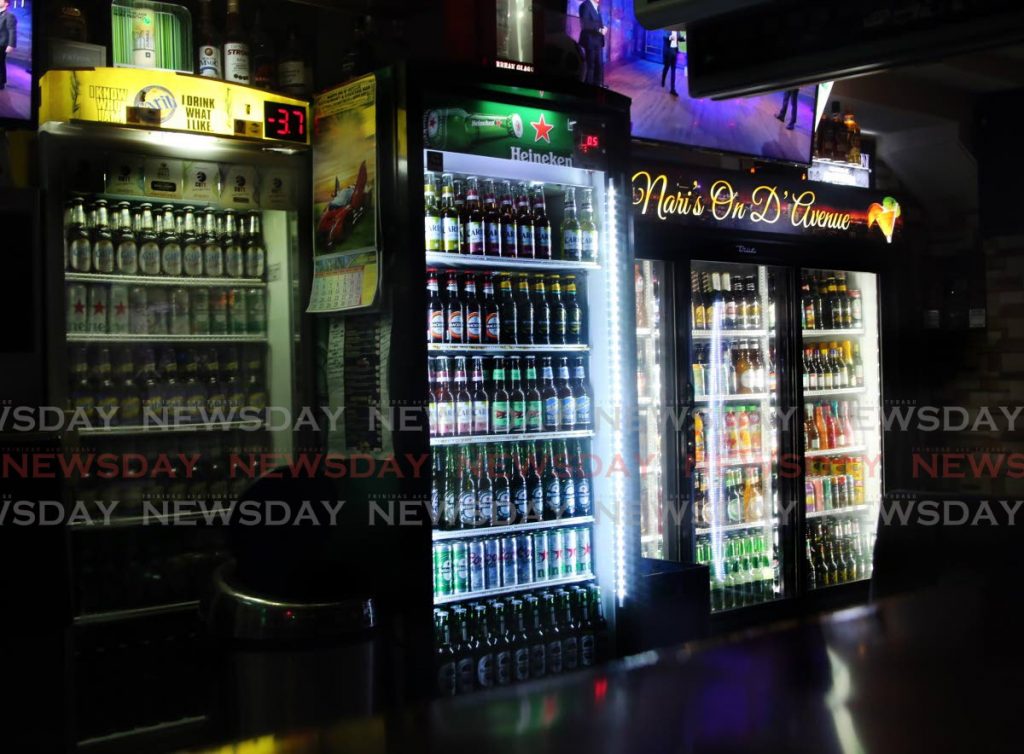A year into the covid19 pandemic, bars running dry

Bar owners feel cheated that they cannot not allow customers to sit in their bars and enjoy a rounds. It's been a year since they've had to limit operations because of the restrictions on the number of people in public places owing to the covid19 pandemic.
They are still feeling the brunt of their losses, director of the Barkeepers and Operators Association (BOATT), Anil Maraj told Business Day.
Bars and restaurants were among the first public places to be closed in the weeks after the first covid19 case was reported on March 12, a year ago.
The virus was first recorded in China in December 2019, after which it was monitored by governments and the World Health Organization (WHO), which declared it a pandemic about a month later. At the end of January, the TT government imposed travel restrictions and a 14-day quarantine for people coming from China. There was debate over cancelling Carnival, but the festival continued.
On March 12, the Ministry of Health reported a 52-year-old male who travelled from Switzerland had the virus, although his symptoms were described as being mild.
Cases continued to increase, with more reported on March 15 and 16, and the government imposed restrictions such as closing bars, restaurants and schools, limiting gatherings to 25 people, travel restrictions including a ban on cruise ships, adjusting passenger loads in taxis, and closing public spaces and places of worship.
High risk of contracting virus
On March 22 the government closed the borders and non-essential workers were told to stay home until April 15, with many organisations implementing a work-from home system.
While there has since been a gradual lifting of the restrictions, to date bars have only been allowed to partially operate: customers can buy drinks but not congregate or lime at bars.
The Prime Minister warned last year: “The biggest risk we are facing now in the population of TT, having withdrawn the children from school, is the liming and drinking and eating out at restaurants and bars. We have had one or two instances of tracing that took us to those locations.
“Bars and restaurants remain a threat. We are doubling up our monitoring of bars and restaurants on a daily basis and this morning I have once again spoken to the Minister of National Security (Stuart Young) to speak to the Commissioner of Police (Gary Griffith) to speak to his charges to enforce the law.”

Maraj said BOATT understood the need to curb the virus but questioned why bars were not being looked at again now. It's not that they expect to fully reopen, but they need help if any are to survive in the coming months.
“We still operate under the grab-and-go system. I think opening fully is on the back burner at this point in time. We are aware of the situation and we know we are not covid19 free, but some assistance should be afforded to us.
“We have been having negotiations with the government for some funding. The minister of finance is entertaining those talks. It is going to be a long haul for the bars and there should be some relief to the owners and employees.”
Maraj was hopeful that the Ministry of Finance would consider waiving some of the taxes bars have to pay, claiming owners were not making enough money. Government has provided billions in covid19 relief with provision been made for small businesses, including bars, to apply for grants. There has been little information on how much went to bars, or how many applied for the help.
However, Maraj said many small bars and those who were renting their properties had to close in the past year. Closures and downsizing, he said, had left many people without jobs. Prior to the pandemic, BOATT estimates there were 3,000 bars in operation which employed about 13,000 people. This figure excluded people employed at restaurants and hotels.
“A lot of people are now on the breadline, and this is our key issue.
"We have a lot of temporary closures, especially those who are renting, about 60 full closures, and about 30 bars that changed ownership. There are almost 200 people who do not have jobs.”
Maraj said while they want to open, bar owners must ensure their customers must adhere to the health protocols.
“I think the issue is the alcohol consumption and gathering, where, when people consume alcohol, they get more relaxed with the protocol. This is government’s concern, and we understand.
“We continue to feel the hurt. We hope that the population understands we are taking the bite for everyone else. People are congregating all over and not observing the rules – whereas most of the bars are observing the rules and are doing so to their detriment.”
BOATT members are unhappy with the current situation and he called on the authorities to crack down on the illegal sale of alcohol, because this has also put a dent in their survival.

He said a few more months like this will lead to more closures and dismissals, despite the grab-and-go-system.
“Yes, we are open, but it goes against our business structure. The alcohol sales by Angostura and Carib are still there. The sales at the bars have now trickled off to other areas such as the supermarkets and wholesalers.
“The situation has opened up the illegal sale of alcohol at outlets such as parlours and mom-and-pop shops who are not licensed to do so. There are so many of these outlets in every town and village.”
He said a discrepancy in the health regulations has curbed the operation of bars but allowed the sale of alcohol in other places which can be consumed in a gathering nearby.
“We are seeing people purchase from supermarkets and lime in the carparks – but if done by a bar, it would be against the covid19 regulations. It is a double standard. The rules are there, and people know they should not be doing it, but because it is not in the health ordinance, the police cannot act.”
The owner of the well-known Rum Jungle bar in Rio Claro, Kevin Mohammed, expressed disappointment with the handling of the reopening of bars and said despite the grab-and-go service, sales have not been good.
Mohammed said he was only able to survive because he runs his bar from his home, but he had to lay off staff.
“I have one employee and had to let go the other two people who worked here. I have been able to keep in contact with them and because of the current economic climate they have been doing odd jobs just to get by.”
He accused the government of wrongfully blaming bars for increased cases and being irresponsible and not following the health protocols.
“They made a blanket statement last year about bars. I would really like to know the statistics on drunk people and how many had covid19, because the updates coming from the authorities show people with comorbidities with the virus.
“While we understand what must be done, they (government) are not doing anything to assist our situation.”

Active cases of the virus have been less than 100 in recent weeks, with no cases reported on some days. However, Health Minister Terrence Deyalsingh has continuously said the public must not see the success in curbing the spread of the virus as a reason to fully reopen the economy.
Not at least until vaccinations begin. And although Government had hoped to receive 100,800 vaccines by the end of the month, it now expects to only get 33,000 with the balance between April and May.


Comments
"A year into the covid19 pandemic, bars running dry"